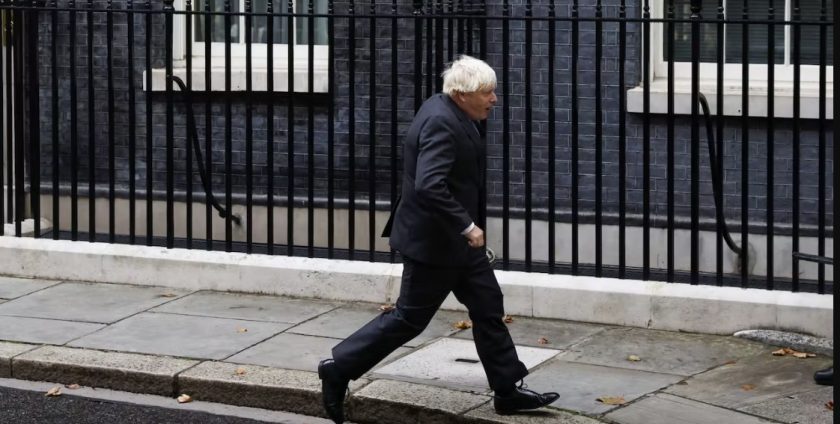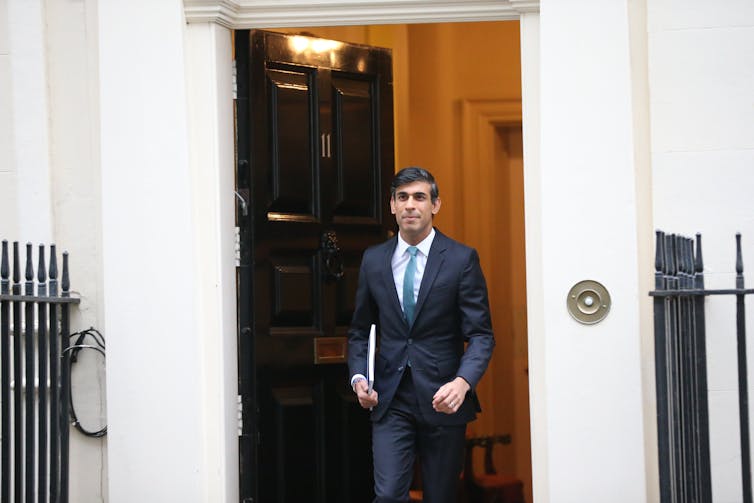Liz Truss resigns: who is in and who is out in the race to replace her?

Liz Truss’s resignation as the leader of the Conservative party immediately triggers a contest to replace her as prime minister.
After the turmoil of recent months, it has been decided that the contest will be short and sharp.
Candidates will need the backing of 100 of their fellow Conservative MPs to run by Monday, which means there will be a maximum of three candidates.
This is how the field stands so far.
Jeremy Hunt
Jeremy Hunt took over as chancellor less than a week before Truss’s resignation and was quickly being referred to as the true holder of power in the government.
His name loomed large as speculation of Truss’s downfall mounted, if only because he was viewed as a safe pair of hands after a period of sheer chaos.
So it was a surprise when he almost immediately took himself out of the running.
Hunt has twice run for the top job and failed, first against Boris Johnson and then in the most recent election, when he fell at the first hurdle.
Rishi Sunak
Rishi Sunak was defeated by Truss in the leadership contest that followed Boris Johnson’s resignation in the summer.
He failed to win the support of the party membership in the head-to-head against Truss even though he had secured far greater support among MPs than her.
Sunak served as Johnson’s longest-serving chancellor but resigned following multiple scandals.
He and his supporters have been critical of Truss’s disastrous economic policies and he could easily claim vindication on this point now that these very policies have destroyed her career.
However, many Johnson loyalists remain hostile to Sunak and view him as the person most responsible for triggering the coup that led to Johnson’s eventual resignation in July 2002.
And since loyalty to Johnson remains strong in the party membership, there remains some significant internal opposition to Sunak ascending to the top job.
Nevertheless, parliamentarians who support Sunak may be seeking to sideline the views of the membership given Truss was their preferred candidate.

Boris Johnson
Perhaps the most surprising name to reappear on the lists of runners and riders in this contest is that of former prime minister Boris Johnson. It has only been a few months since he had to resign in disgrace.
While many were glad to see the back of his scandal-ridden regime, he retains a hardcore base of loyal supporters in parliament and in the party membership.
In a YouGov poll taken in the days before Truss’s resignation, he topped the list of possible replacements.
Some continue to believe that his record as an election winner should trump any concern over his personal flaws.
It would certainly be one of the greatest political comebacks of all time if the Conservatives turned to him to salvage their plummeting reputation.
Many moderate Conservative MPs would feel that he remains too much of a risk to their already tarnished brand.
Suella Braverman
Braverman was forced out of office as home secretary just one day before Truss’s departure. She lashed out at the government in a dramatic resignation letter that was widely read as a bid for leadership:
I have concerns about the direction of this government. Not only have we broken key pledges that were promised to our voters, but I have had serious concerns about this government’s commitment to honouring manifesto commitments.
Braverman unsuccessfully ran for the top job in the summer and is firmly on the Eurosceptic right of the party.
Her somewhat radical views on immigration are thought to be unpopular with more mainstream members of the parliamentary party, who also see her as far too inexperienced for the top job.
And this is the group she would have to win over in order to stand a chance.
All told, she appears to be a disruptive force in this contest more than a viable candidate.
Penny Mordaunt
Mordaunt was said to have done her leadership prospects no harm when, as leader of the House, she combatively defended the government’s recent travails in the Commons while Truss was mysteriously absent.
Mordaunt was an early favourite in the leadership race to replace Boris Johnson, but was knocked out of the running just before the vote reached party members. Coming in third, she eventually backed Truss.
However, she perhaps lacks public profile and volume of parliamentary support compared to some of the other prospects.
Kemi Badenoch
Another of the defeated summer leadership candidates, Badenoch represents a younger generation of Conservative MPs.
First elected in 2017, she is a relatively fresher candidate than most of the other contenders and surprised many observers for even standing for leader. She did better than expected, winning the endorsement of senior figures.
Of slight concern maybe is that she voiced many of the similar radical economic sentiments that culminated in Truss’s budget shambles, and she lacks any significant cabinet experience until recently.
Of all the candidates, she would likely be the most concerned about getting the 100 votes needed to stand.![]()
By Ben Williams, Lecturer in Politics and Political Theory, University of Salford
This article is republished from The Conversation
Spotted something? Got a story? Email: [email protected]
Latest News
